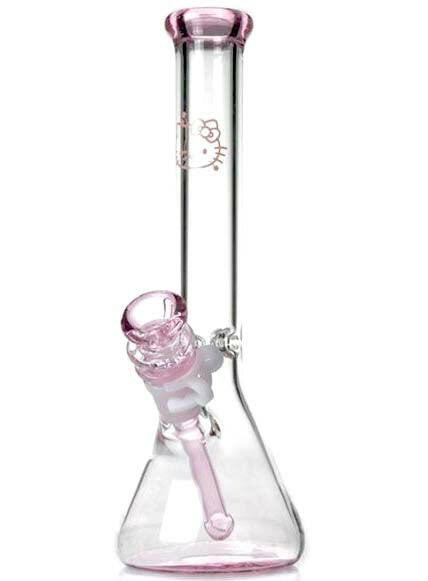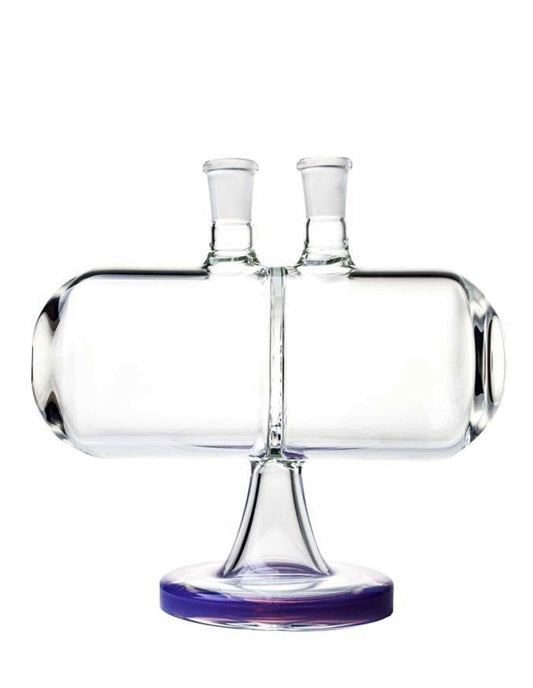Can Using a Bong Cause Heart Problems?
Ah, bongs—the trusty water pipes that have been around for what seems like forever, providing smoother hits and cooler smoke to smokers worldwide. Whether you’re an occasional user or someone who enjoys regular sessions with friends, it’s no secret that bongs hold a special place in the hearts of cannabis enthusiasts. But there’s another part of your body that might not be too thrilled about your bong use: your actual heart.
It’s no exaggeration to say that the heart is the engine of the body. It works tirelessly, pumping blood through our veins, keeping us alive and kicking. So naturally, when the question pops up, “Can using a bong cause heart problems?”, it’s worth exploring. If you’ve ever wondered how your bong habits could be affecting that vital organ in your chest, you’re not alone. It’s time to dig deep and figure out what’s really going on between bongs and the heart.
The Basics: What Happens When You Use a Bong?
Before we dive into the heart-related risks, let’s quickly recap what happens when you take a hit from a bong.
A bong works by cooling and filtering smoke through water, allowing for larger hits that feel smoother on your throat and lungs compared to joints or pipes. It’s no wonder why so many smokers prefer bongs—they offer an experience that’s a little easier on the body, right?
But here’s where things get a bit tricky. While bongs do filter out some of the larger particles, they don’t remove everything harmful from the smoke. You’re still inhaling combustion byproducts, including tar, carbon monoxide, and other toxins. Even though the smoke feels smoother, you’re still taking harmful chemicals into your lungs, which can affect other parts of your body—including your heart.
Smoke and the Heart: What’s the Connection?
We all know that smoking anything—whether it’s tobacco, cannabis, or even herbal blends—introduces foreign substances into your body. And when it comes to your heart, this can lead to some serious complications.
Smoking and Cardiovascular Stress
When you smoke, your body reacts almost immediately. Nicotine in cigarettes, for example, causes a temporary increase in blood pressure and heart rate, but here’s the thing: even without nicotine, inhaling smoke of any kind causes your heart to work harder. The carbon monoxide in the smoke binds to hemoglobin in your blood, which reduces the amount of oxygen your blood can carry. This forces your heart to pump harder to get enough oxygen to your vital organs.
Additionally, the toxins and inflammatory agents in smoke can cause vasoconstriction, or narrowing of your blood vessels, which further increases your blood pressure and puts added strain on your heart. Over time, this strain can increase your risk of developing heart disease, hypertension, or even lead to a heart attack.
So, while smoking from a bong might feel better on your lungs, it’s not necessarily any gentler on your heart. You’re still inhaling those toxic byproducts, and they’re still making your heart work overtime.
Cannabis and the Heart: More Than Just Smoke
Now, let’s talk about cannabis itself, because that plays a significant role in this discussion. While most of the focus on heart health tends to center around tobacco smoking, cannabis isn’t entirely off the hook when it comes to heart risks.
THC (tetrahydrocannabinol), the psychoactive component of cannabis, has some unique effects on the cardiovascular system. Within minutes of smoking cannabis, THC can cause a temporary increase in heart rate—sometimes doubling it in heavy users—and a slight increase in blood pressure.
For most people, this temporary spike isn’t a big deal, but if you have pre-existing heart conditions like arrhythmia, high blood pressure, or coronary artery disease, these effects can exacerbate your condition. Essentially, your heart has to work harder, which can trigger symptoms like chest pain, palpitations, or even increase the risk of a heart attack in people who are vulnerable.
Moreover, THC is known to affect blood vessel function. Some studies suggest that cannabis use can impair the body’s ability to regulate blood flow, which, again, puts more strain on your cardiovascular system. Over time, this could increase the likelihood of heart issues, especially in people who smoke frequently or in large amounts.
Can Using a Bong Specifically Cause Heart Problems?
Now, you might be thinking, “But I only use a bong, so isn’t that better than smoking a joint or a blunt?”
The short answer is: not really.
While bongs do help filter out some of the harmful particles in smoke, they don’t eliminate the risk entirely. In fact, some studies suggest that bong users might inhale even more carbon monoxide and toxins than those who smoke joints because the smoother hits allow for larger inhalations. So, while you might feel like you’re protecting your lungs, you could be putting more strain on your heart by taking in bigger, deeper hits.
Additionally, the water filtration in a bong doesn’t filter out gases like carbon monoxide, which means your heart still has to work harder to compensate for the reduced oxygen levels in your blood. And if you’re someone who takes frequent bong hits, that repeated strain on your heart can add up over time.
The Role of Dirty Bongs: A Hidden Risk?
Let’s not forget about the importance of keeping your bong clean. A dirty bong doesn’t just ruin the taste of your smoke; it can also introduce mold, bacteria, and other harmful substances into your body. If you’re consistently inhaling contaminants from a dirty bong, it could lead to lung inflammation, which in turn puts additional stress on your heart.
Plus, any water residue that builds up in the bong can hold onto harmful chemicals, making your hits even more dangerous than they would be from a clean bong. So, if you’re not in the habit of cleaning your bong regularly, you could be increasing the risks for both your lungs and your heart.
Who’s Most at Risk?
It’s important to note that not everyone who uses a bong is at the same risk for heart problems. Some people are more vulnerable to heart issues due to pre-existing conditions or lifestyle factors. Here’s a look at who might be most at risk:
-
People with Pre-existing Heart Conditions: If you have heart disease, high blood pressure, or a history of heart attacks, bong use could significantly increase your risk of complications. The added strain on your heart from both the smoke and the THC can make an existing condition worse.
-
Older Adults: As we age, our hearts naturally become less efficient. For older adults, the cardiovascular strain caused by smoking cannabis from a bong could increase the risk of heart attacks, strokes, or other cardiovascular events.
-
People Who Smoke Frequently: If you’re a daily bong user, the repeated exposure to smoke, carbon monoxide, and THC can add up over time, increasing your risk of heart disease.
-
Individuals with Respiratory Conditions: If you already have a respiratory condition like asthma or COPD, your heart might be working harder to compensate for reduced lung function. Adding bong use into the mix could worsen both your lung and heart health.
Can Occasional Bong Use Be Harmful?
What if you’re not a heavy smoker? If you only use a bong occasionally, are you still at risk for heart problems?
The answer is: it depends. Occasional bong use is certainly less risky than using one every day, but it’s not without potential consequences. Even one smoking session can cause temporary spikes in heart rate and blood pressure, and if you have an underlying heart condition, that short-term strain could be enough to trigger symptoms.
For healthy individuals with no history of heart problems, the risks are lower, but they’re still present. The key is to be mindful of how your body reacts to cannabis and smoke, and to pay attention to any signs that your heart might not be happy with what’s going on.
Signs Your Heart Might Be Struggling
If you’re a regular bong user (or even an occasional one), it’s important to listen to your body and recognize the signs that your heart might be under strain. Some symptoms to watch out for include:
- Rapid heartbeat or heart palpitations after smoking
- Chest pain or tightness
- Shortness of breath that feels worse than usual
- Dizziness or feeling light-headed after taking a hit
- Unusual fatigue or weakness
If you experience any of these symptoms, especially after using a bong, it’s a good idea to take a break and talk to a healthcare professional. It might be your body’s way of telling you that your heart needs some extra care.
How to Reduce the Risk of Heart Problems from Bong Use
Alright, so using a bong does come with some potential heart risks, but that doesn’t mean you have to swear off your favorite smoking device forever. There are ways to reduce the strain on your heart while still enjoying your bong from time to time. Here are a few tips:
1. Moderation is Key
As with most things in life, moderation is your friend. If you’re a heavy bong user, try cutting back to reduce the strain on your heart. Giving your body time to recover between sessions can help protect your cardiovascular system.
2. Choose a Cleaner Method
If you’re worried about the effects of smoke on your heart, consider switching to vaping. While vaping isn’t without its risks, it generally produces fewer harmful combustion byproducts than smoking. Dry herb vaporizers, in particular, offer a way to enjoy cannabis without exposing your lungs and heart to as much tar and carbon monoxide.
3. Clean Your Bong Regularly
A clean bong is a happy bong—and a healthier one, too. Regularly cleaning your bong will reduce the amount of bacteria, mold, and other contaminants that could add to the strain on your lungs and heart.
4. Pay Attention to Your Heart
Listen to your body. If you notice that your heart is racing or you feel uncomfortable after using a bong, take it seriously. It might be a sign that your heart isn’t handling the strain well.
5. Stay Hydrated
It sounds simple, but drinking water can help your cardiovascular system function more efficiently. Staying hydrated keeps your blood flowing smoothly, reducing the strain on your heart during smoking sessions.
The Bottom Line
So, can using a bong cause heart problems? Yes, it can—but the risks depend on factors like how often you smoke, your overall health, and how clean you keep your bong. Inhaling smoke, whether from a bong or any other source, puts strain on your heart, and the effects of cannabis itself can further complicate matters by increasing your heart rate and blood pressure.
That said, occasional bong use is unlikely to cause long-term heart damage in healthy individuals. But if you have pre-existing heart conditions or smoke frequently, it’s worth taking a closer look at how your bong habits might be affecting your cardiovascular health.
At the end of the day, the key to enjoying your bong responsibly is moderation, awareness, and, of course, a sparkling clean bong. So, take care of your heart, clean your bong, and enjoy those smooth hits—just don’t forget that your heart is along for the ride, too.







